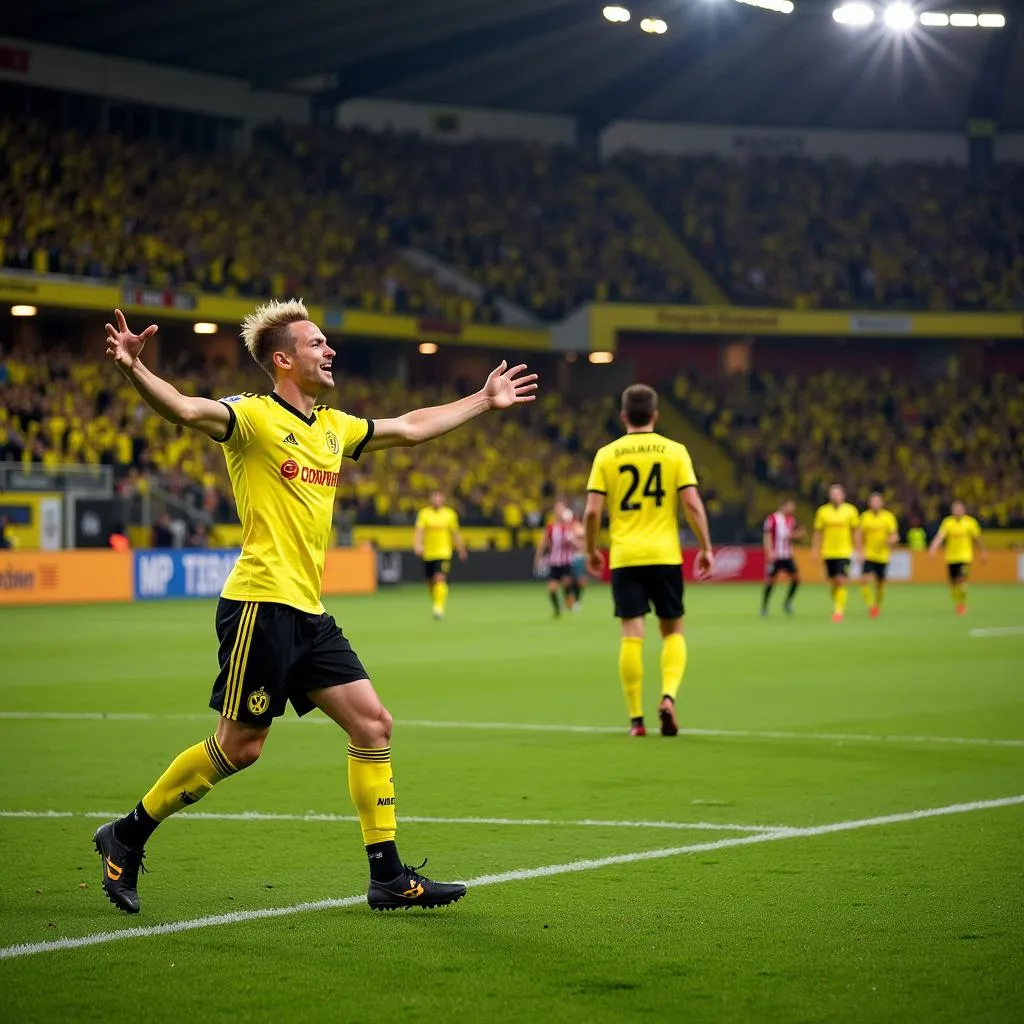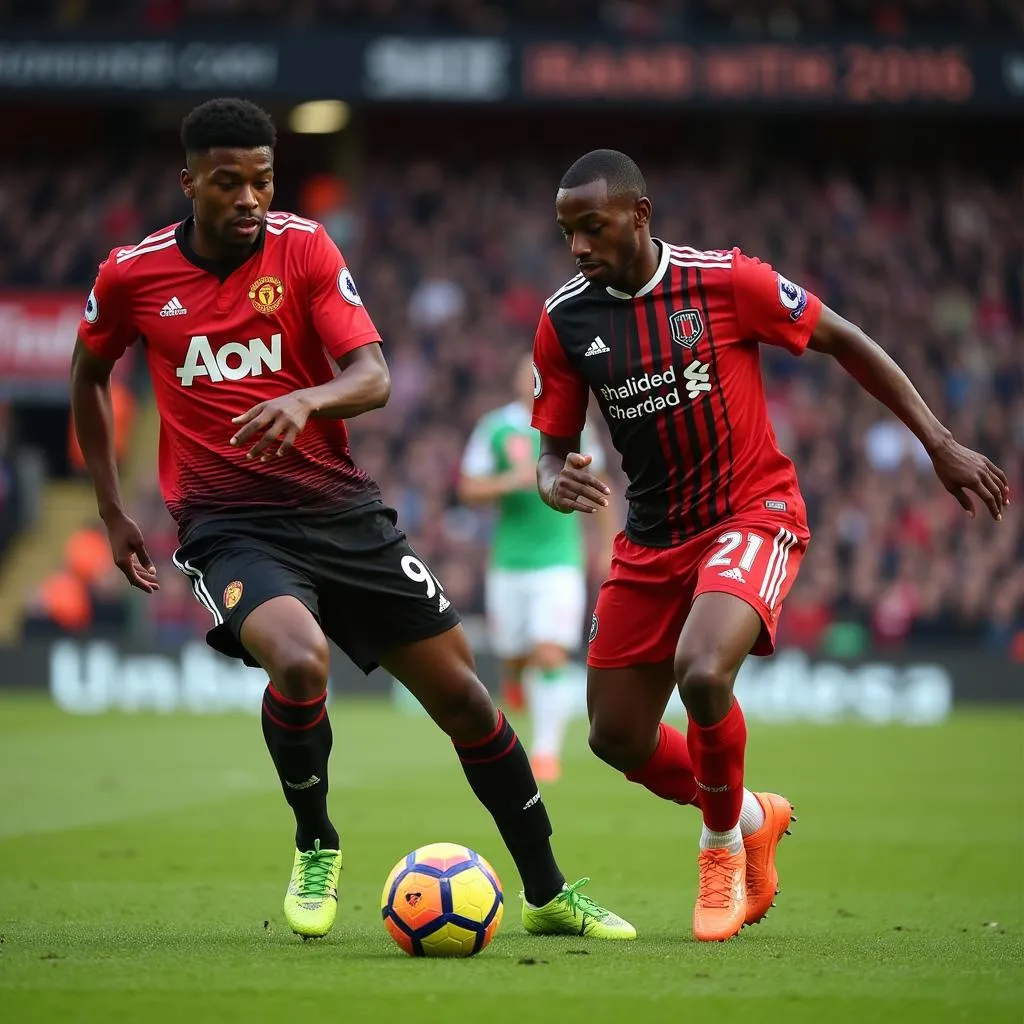Dortmund Without Haaland: A New Era Begins
October 9, 2024The departure of Erling Haaland from Borussia Dortmund sent shockwaves through the footballing world. His prolific goalscoring prowess, combined with his electrifying pace and strength, made him a force to be reckoned with in the Bundesliga and on the European stage. Now, as the Norwegian striker embarks on a new chapter at Manchester City, Dortmund faces the daunting task of filling the void left by their talismanic number nine.
The Haaland Era: A Period of Goals and Glory
During his two-and-a-half seasons at Signal Iduna Park, Haaland took the Bundesliga by storm, netting an astounding 86 goals in 89 appearances across all competitions. His remarkable goalscoring exploits played a pivotal role in Dortmund’s triumph in the DFB-Pokal in 2021, ending the club’s four-year trophy drought.
Haaland’s impact transcended mere statistics. He injected fear into opposition defenses, forcing them to alter their game plans and deploy additional resources to contain his threat. His presence on the pitch not only guaranteed goals but also created space and opportunities for his teammates, elevating the overall performance of the squad.
 Haaland celebrating a goal with Dortmund fans
Haaland celebrating a goal with Dortmund fans
The Post-Haaland Era: Challenges and Opportunities
Haaland’s absence leaves a gaping hole in Dortmund’s attack, posing a significant challenge for the club’s ambitions. Replacing a player of his caliber is a near-impossible task, requiring a multi-faceted approach that involves tactical adjustments, shrewd acquisitions, and the emergence of new leaders within the squad.
However, Haaland’s departure also presents Dortmund with an opportunity for reinvention. Without their primary source of goals, the team is forced to evolve tactically, moving away from their reliance on Haaland’s individual brilliance and fostering a more cohesive and fluid attacking unit. This transition demands greater creativity, movement, and shared responsibility in the final third.
Finding the Heir Apparent: A Multifaceted Approach
Dortmund has already taken steps to address the Haaland-shaped void in their squad, securing the signing of young German striker Karim Adeyemi from Red Bull Salzburg. Adeyemi, known for his blistering pace and clinical finishing, arrives with a burgeoning reputation and the potential to develop into a prolific goalscorer.
However, relying solely on Adeyemi to replicate Haaland’s impact would be unrealistic and unfair. Dortmund’s success in the post-Haaland era hinges on a collective effort, with existing players stepping up and new signings adding depth and quality to the squad.
 Adeyemi dribbling past a defender
Adeyemi dribbling past a defender
Embracing a New Identity: Tactical Flexibility and Collective Responsibility
Beyond personnel changes, Dortmund’s success in the absence of Haaland depends on their ability to adapt tactically. Coach Marco Rose is likely to employ a more fluid and adaptable system, emphasizing possession-based football and encouraging greater interplay between midfielders and forwards.
This tactical shift demands a change in mentality as well. Without Haaland’s individual brilliance to fall back on, Dortmund must embrace a more team-oriented approach, sharing the goalscoring burden and relying on collective creativity to unlock opposition defenses.
The Future Without Haaland: A New Chapter Beckons
Dortmund Without Haaland is a new and untested proposition. The challenges are undeniable, but so are the opportunities. By embracing a new identity, fostering collective responsibility, and making astute additions to the squad, Dortmund can navigate this transitional phase and remain a force to be reckoned with in German and European football.
The post-Haaland era marks the beginning of a new chapter in Dortmund’s storied history, one filled with both uncertainty and excitement. Whether they can maintain their position among Europe’s elite without their Norwegian talisman remains to be seen, but one thing is for sure: the journey will be fascinating to watch.